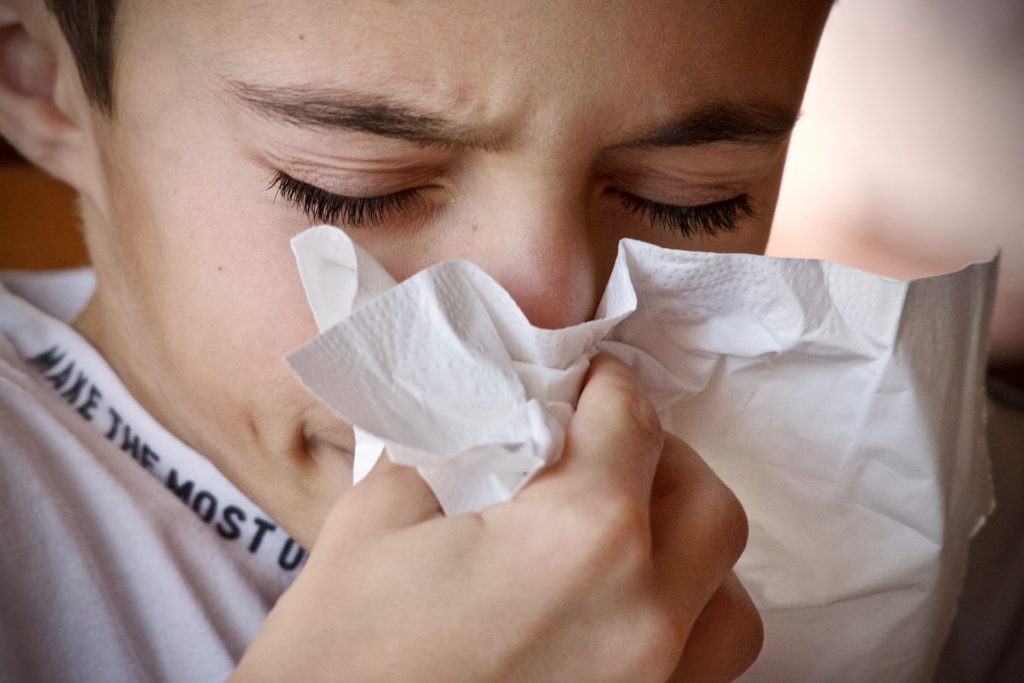In recent times, climate change has emerged as one of the most pressing challenges for the global community and has impacted both human health and other aspects of life on Earth. One of the consequences of climate change is the increase in allergies: a public health issue that requires special attention.
It is important to consider that allergies are the human body’s own immune responses, caused by exposure to substances such as pollen, dust and certain foods, which are generally harmless and found in the environment in which we live. Climate change is aggravating these immune responses in different ways. For example, with increasing global temperatures and changes in precipitation patterns, which causes an alteration in plant pollination seasons and can lead to prolonged pollination cycles and increased pollen production. This is a common trigger for respiratory allergies.
In Paraguay, we experience sudden changes in temperature: a climatic phenomenon typical of the region, which can have significant impacts on various aspects of public health. Paraguay is a country located in the heart of South America, with a very characteristic subtropical climate.
A particularity of the Paraguayan climate is the seasonal transition between a warm and humid period (spring and summer) and a cooler and drier period (autumn and winter). During these seasonal changes (which are periods of time of 4 months between seasons), fluctuations in temperatures can be very marked. For example, summer can have very hot days, with temperatures exceeding 40°C, followed by cool nights, in contrast to winter, which can experience mild days and very cold nights, with temperatures that can drop rapidly, especially in the southern and eastern regions of the country.
Another distinctive feature of these seasonal changes is the occurrence of significant temperature variations in short periods. For example, in Paraguay one day it can reach 38°C, while the next day the temperature can drop to 20°C. These sudden fluctuations have a significant impact on health, increasing the incidence of respiratory and viral diseases due to the rapid adaptation the body needs to make to these thermal changes. This effect is especially worrisome for vulnerable people such as young children, the elderly and those with pre-existing medical conditions.
Governmental agencies in the country are carrying out health campaigns to raise awareness of climate change and respiratory diseases, because Paraguay has the highest rates of allergic diseases, not only regionally but worldwide. This is also due to air pollution associated with high levels of humidity and heat, which creates the perfect context for allergic diseases to continue to increase.
The link between climate change and the increase in allergies is undeniable. Addressing this challenge requires decisive action, whether at the local, regional or global level. At the local level, it is important that municipalities and state institutions conduct regular monitoring of existing allergen and air pollutant levels, as well as educate the population on how to mitigate the effects of allergies. On a regional or global scale, it is necessary to reduce greenhouse gas emissions, thus promoting adaptation to climate change, in order to minimize its impacts on human health.
Several governments collaborate in these actions with the purpose of achieving Sustainable Development Goals, through the 2030 Agenda. Therefore, both citizens and authorities must be prepared to deal with these sudden climate changes effectively.
Sudden temperature changes in Paraguay are a distinctive feature of its climate. The country’s inhabitants have developed a remarkable adaptation to these variations, although their effects on health remain a concern for government authorities.
If you are a foreigner and wish to explore Paraguay’s customs, traditions and landscapes, we recommend packing both wool coats and light clothing. No matter the month of the year, you need to be prepared for any weather eventuality and live the Paraguayan experience to the fullest.

